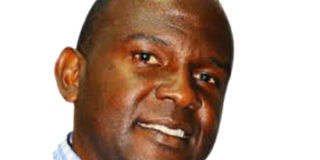Guns and not tractors: The Russian campaign of 2019

What you need to know:
- Bad governance. One of the things that have insulated sub-Saharan Africa from conflict and attracted many to praise it for “long periods of peace” that makes it a good investment destination, is ironically drawn from elements of bad governance.
As is the wont these days, all world economic power houses take off sometime and invite African leaders to meet them together ‘at once.’ So you have the China-Africa Summit, The Indo-Africa Summit, the Euro-Africa Summit, etc. It is a kind of demonstration of a power relation where the seemingly weak and needy gravitate towards the alpha male in the kraal at the sound of a bell.
In this same spirit, the Russia-Africa Summit happened last week in the Russian town of Sochi. More than 43 African heads of State met Russian President Vladimir Putin to discuss a range of issues - from trade, investment, security, humanitarian assistance to diplomacy. What caught the eye of most watchers from Africa was the excitement and enthusiasm many African delegates displayed regarding Russian arms. Putin said he signed more than 30 arms deals with his guests.
On his Twitter handle, Charles Onyango-Obbo summed it up thus: “There is a weapons exhibition at the Russia-Africa summit and “our people,” of course, were happy to get a feel of them. The likelihood that they would have been less excited to try out tractors and computers, pretty sums up why we are where we are.”
Speaking on a talk show on the BBC radio at the weekend, a pundit said looking at the figures of trade between Russia and sub-Saharan Africa compared to China, USA, India, Germany and the UK, Russia is still far behind. He claimed that their agenda may not be principally increase in trade per se. For instance, according to an Op-ED in Brookings by Landry Signe, in 2018, Russia exported $3 billion to sub-Saharan Africa, while imports from the same region came to $1.7 billion.
Most of the goods from Russia are military hardware.
On the other hand, the Office of the United States Trade Representative says in 2017, US exports to sub-Saharan Africa totalled $14.1 billion while the imports were $24.9 billion.
The US, let alone China, which is the major trading partner with sub-Saharan Africa, is a more significant trading partner. The analyst on the BBC said Russia is mainly targeting Africa’s “corruption networks” to cash in on its arms industry and may be make quick and easy money to build its struggling economy.
This makes sense. Unlike tractors, combine harvesters, irrigation equipment and computers to mention but a few, arms trade is highly classified and shrouded in secrecy. You can compare the prices of tractors judging from their horse power and engine capacity to arrive at a comparative value and price. Same applies to computers.
This may not be possible when dealing with arms where there is scanty information on their specifications and other information for the sake of “national security.”
So if a country spends billions of dollars on whatever equipment, you can never know who gets to chop what, back in the purchasing country and what the oligarchs in Russia get to line their pockets. But then what about the argument that these weapons will fuel conflict in Africa? It is also very unlikely.
One of the things that have insulated sub-Saharan Africa from conflict and attracted many to praise it for “long periods of peace” that makes it a good investment destination, is ironically drawn from elements of bad governance.
The world has grown smaller for most of the corrupt ruling classes in Africa making their loot very difficult to hide, especially in the West where anti-money laundering laws, visa restrictions and sanctions are now causing many sleepless nights.
So the only thing to do is to keep the money on the continent and try as much as possible to protect it by ensuring a peaceful (or war-free environment.) This means you appease your opponents by buying them off. That is why currently in most African countries you can hardly tell an Opposition Member of Parliament from one of the ruling government going by the privileges they enjoy.
Granted they will lambast the dictator who has been in power forever and claim that he is going to rig the next election. But they will still take part in that election, make it to Parliament to legitimise the so-called dictatorship and pretend to fight it from within. Next you will see them on foreign trip after foreign trip for “bench marking” purposes as they pocket hefty allowances to pay school fees for their children. Most are like Nicodemus in the Bible, who dined with Jesus by day and was with the Pharisees under the cover of darkness.
The same applies to the generals in the African armies. Most are now “business generals” having acquired questionable wealth that far outstrips their known sources of income. In fact, in some cases, they are protected and encouraged as they break the law. This means that they may be held at ransom by threats of prosecution in case they attempt to cause trouble.
The huge tracts of land and real estate, forces them to have a serious interest in maintaining the status quo even if it goes against the constitution they are supposed to protect. The small pockets of discontent can be dealt with using sticks, tear gas, or frustrating their businesses and snuffing out their sources of income.
In the extreme when push comes to shove, live ammunition may send them six feet below. This puts them out of action and teaches the rest what awaits them in case they dare.
Mr Sengoba is a commentator on political and social issues.
[email protected].
Twitter:@nsengoba




